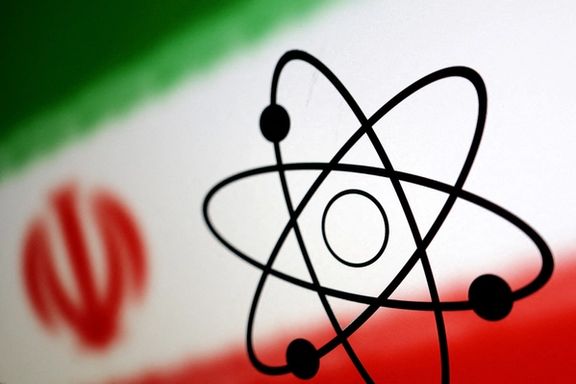Britain, France, Germany, warn of tougher measures on Iran

Iran faces the threat of tougher sanctions as Britain, France, and Germany warn of a potential snapback of UN measures against Tehran that were lifted as part of the 2015 nuclear deal.

Iran faces the threat of tougher sanctions as Britain, France, and Germany warn of a potential snapback of UN measures against Tehran that were lifted as part of the 2015 nuclear deal.
Iran has ramped up enrichment of uranium to up to 60% purity, edging closer to the 90% needed to be weapons grade, according to the UN nuclear watchdog chief, Rafael Grossi.
If successful, a “snap back” by the group known as the E3, would force Iran to suspend all nuclear enrichment-related and reprocessing activities, including research and development, and ban imports of anything that could contribute to those activities or developing nuclear arms delivery systems.
"Iran must deescalate its nuclear program to create the political environment conducive to meaningful progress and a negotiated solution," the UN ambassadors of Britain, Germany and France wrote in a December 6 letter to the Security Council.
"We reiterate our determination to use all diplomatic tools to prevent Iran from acquiring a nuclear weapon, including using snap back if necessary," they said.
Earlier this year, Grossi warned Iran is "weeks not months" away from a nuclear weapon.
A “snap back” would also see a conventional arms embargo reimposed, banning Iran from developing ballistic missiles capable of delivering nuclear weapons and revive targeted sanctions on dozens of individuals and entities.
Iranian shipments would also be more heavily scrutinized globally with threats of cargo being seized.
As the diplomatic crisis deepened, European and Iranian diplomats met late last month to discuss whether they can work to defuse regional tensions, including over Tehran's nuclear program, before Donald Trump's return to the White House, which promises a “maximum pressure” stance on Iran.
Iran has pushed back against the action by the E3, its UN ambassador, Amir Saeid Iravani, urging the group to "abandon their ineffective and failed policy of pressure and confrontation," saying they "should embrace diplomacy and focus on rebuilding the trust essential to resolving the current impasse."
The E3 has intensified its pressure on Iran following the Russian war in Ukraine, as Tehran's military support for Russia has prompted additional sanctions from the international community.
Iran’s ally Russia also criticized the E3's actions, with UN Ambassador Vassily Nebenzia asserting on Tuesday that Britain, Germany, and France had no authority to invoke the "snapback" of sanctions. He described their suggestion of potentially using the "snapback" mechanism as both unjustified and irresponsible.
In his biannual report to the UN Security Council on the implementation of the 2015 nuclear deal, known as the JCPOA, Antonio Guterres, the UN Secretary General, warned of a "critical need for a peaceful solution to the Iranian nuclear issue" while conflict and instability continues across the Middle East.
During his first term, Trump quit the nuclear deal in 2018, and now, threatens to toughen down further. He has already enlisted a range of figures known to be tough on Iran and on Wednesday, Reuters reported that the President-elect is now considering Richard Grenell, his former intelligence chief, to be a special envoy for Iran.
However, Grenell denied the report, writing on X: “This is made up.”